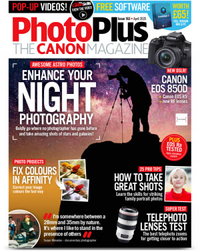
Once you’ve tried all of the previous steps and have made successful in-roads as a photographer, you have a professional website and your technical camera knowledge is top-notch, then you might want to consider running photography workshops. This is where prospective clients, often amateur or enthusiast photographers, will pay for tuition to help them take some better photos and have a deeper understanding of their Canon cameras and settings too.
Many professionals do a mixture of all of the things we’ve been talking about so far and are masters at spinning many plates at once. Running workshops can be a big part of the overall revenue stream for modern professionals. Having multiple revenue streams also helps spread out the risk if should any one of them give you a slow month.
• These are the best cameras for professionals
Professional landscape and wildlife photographer, Drew Buckley, makes a living from workshops as well as writing books like Photographing South Wales. “Workshops are ideal ‘bread and butter’ work you can do all year," he tells us. "While they’ve grown in popularity, it’s easy to forget the fundamentals and the ability to teach. I don’t think anyone can jump into it without having a huge amount of knowledge."
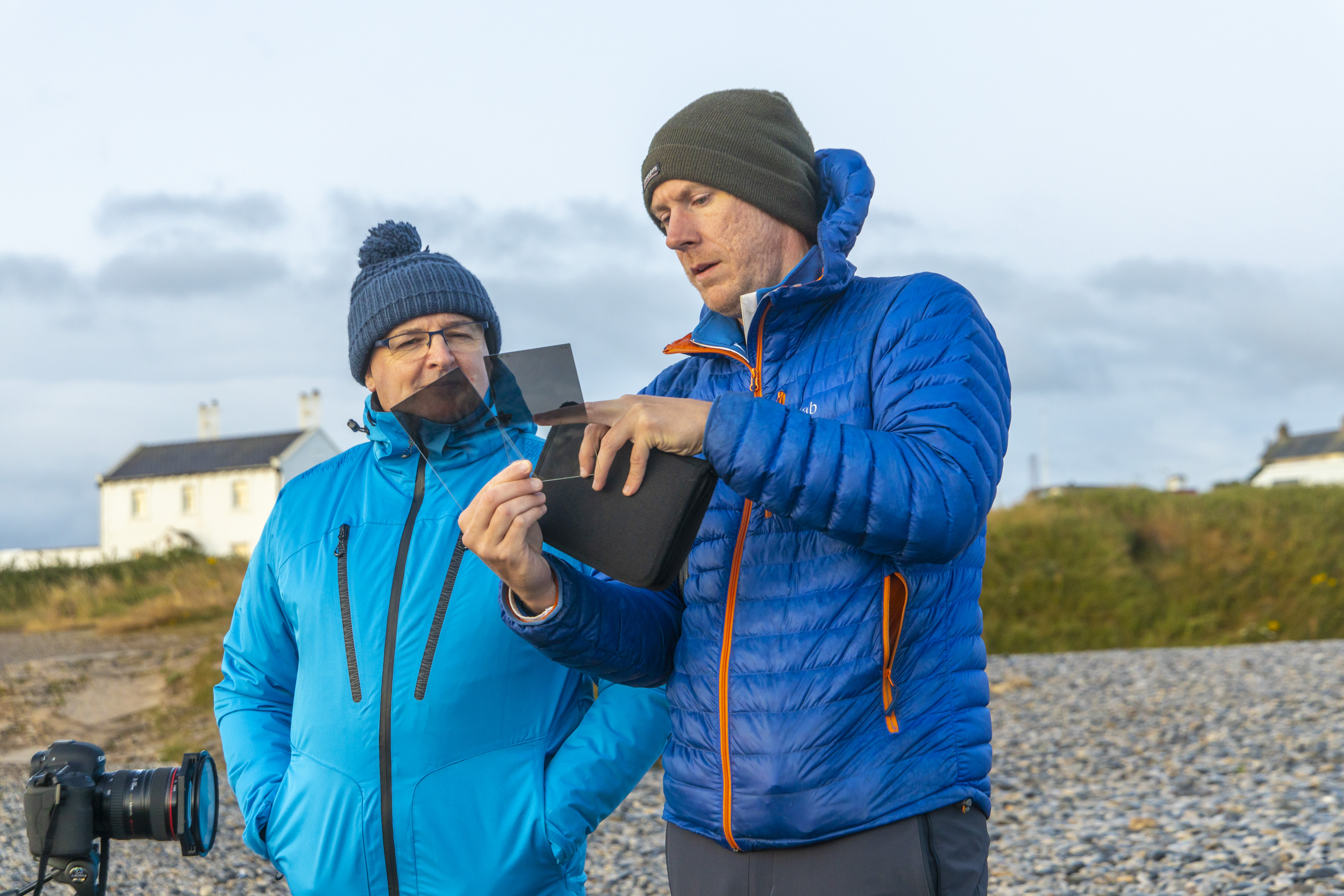
"It takes years to learn, struggle and develop your style as a photographer, but even longer to go beyond that and be able to relay your advice in a concise and accurate way, so the paying client gets the very best out of the day.
"When starting out you could work more as a photography guide where the location outweighs the tutors’ knowledge and over time you can build knowledge not only on camera techniques, but learning how to interact with people and customizing their overall experience."
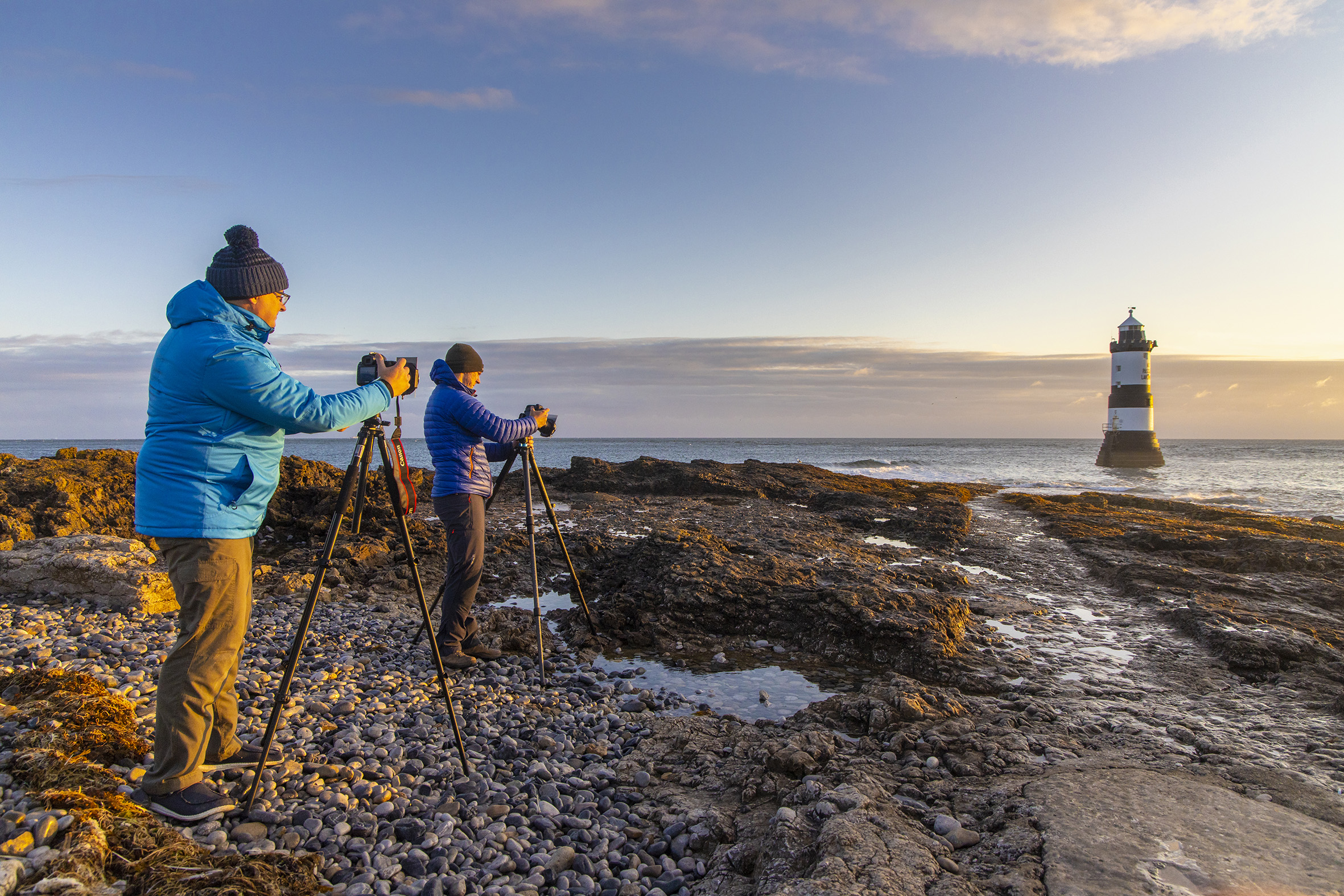
Workshops are often seasonal with the majority running in spring, summer and autumn, with winter usually being an off-season to recuperate and focus on your other priorities, such as your website or stock library.
Though this completely depends on the sort of photography you specialize in and want to offer to teach; landscape workshops obviously work better with the long days in summer, but if you wanted to teach astrophotography or the Northern Lights in Norway, for example, then the shorter days in winter may suit you better.
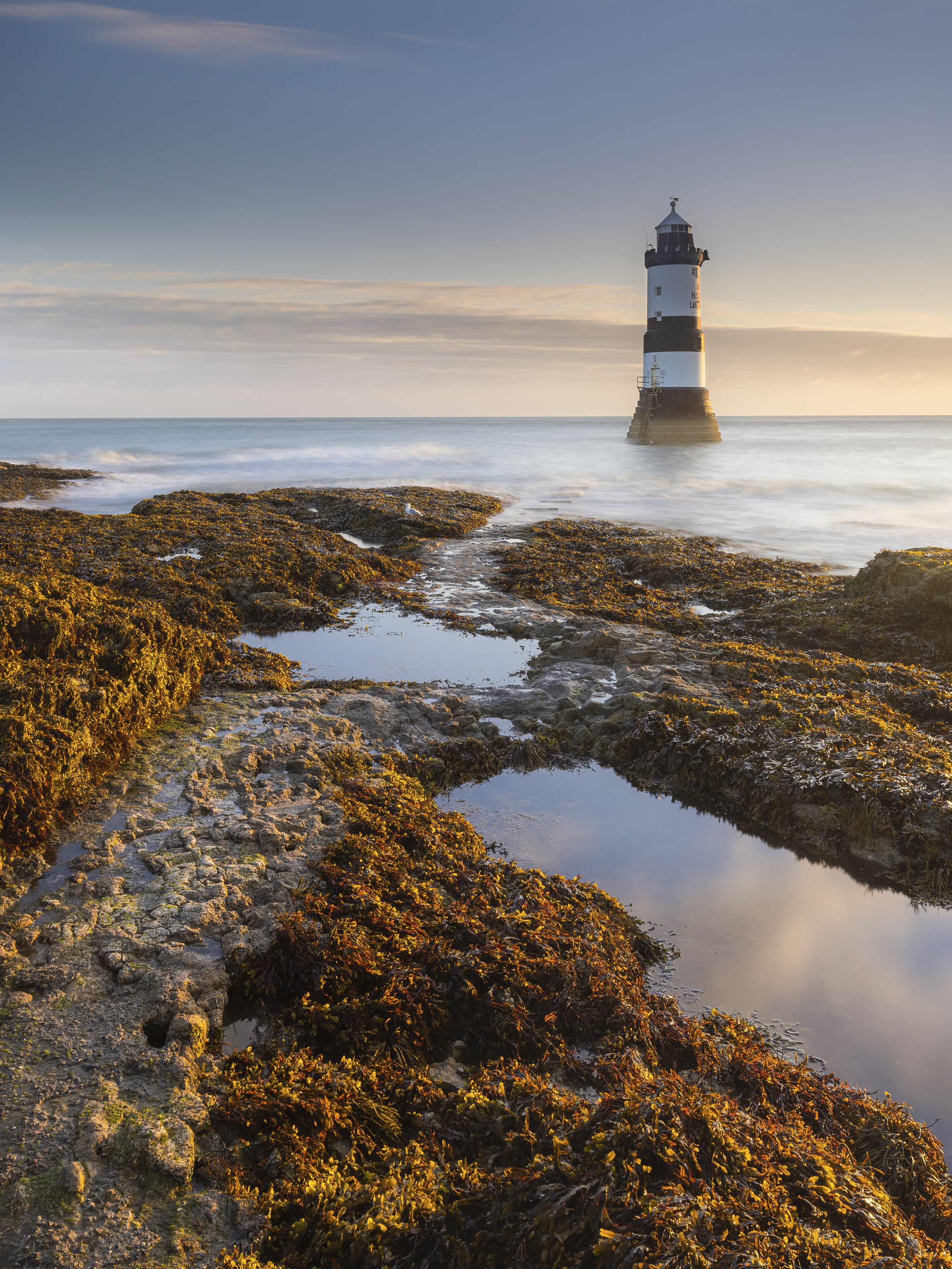
Some professional photographers get permission to build wildlife hides in places where they’re guaranteed to see a certain type of animal, such as red squirrels. In some cases the photographer pays for cost of constructing the hide but can then run workshops out of that area, and the landowner will likely take a small cut of each workshop booking in return.
This could be worth considering if you specialize more in wildlife photography than landscapes, and know a private area and land owner and are more interested in nature.
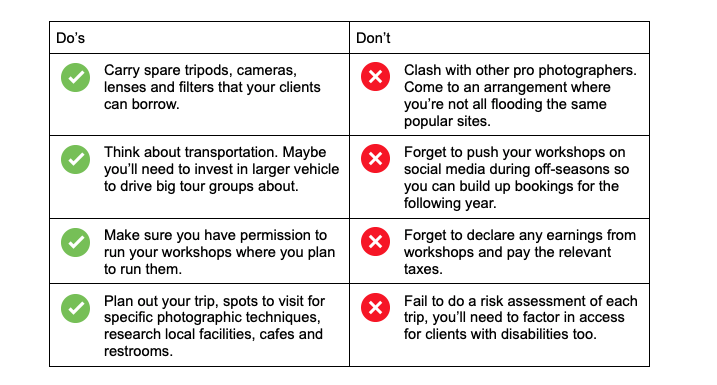
Working remotely

Some professionals like Natasha J Bella are running studio portrait workshops remotely over Zoom, due to the lockdown restrictions over the pandemic which prevented clients from getting to her home studio.
She’s tethered her Canon EOS cameras so that clients can shoot remotely all around the world from USA to China. She plans to keep her remote tuition available even after the pandemic is over, as it’s opened up the possibility to teach photography to so many more people around the globe.
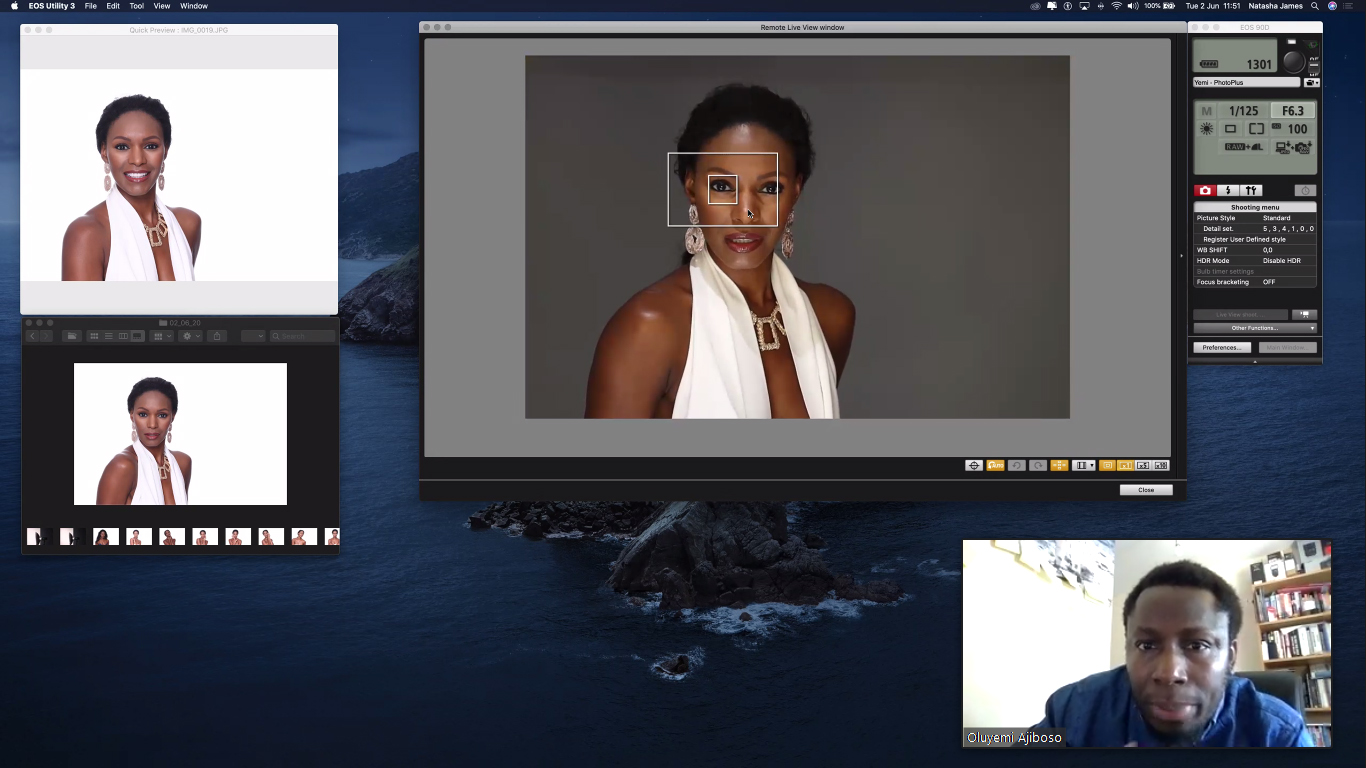
PhotoPlus: The Canon Magazine is the world's only monthly newsstand title that's 100% devoted to Canon, so you can be sure the magazine is completely relevant to your system.
Read more:
Best lens for portraits
Best camera for portraits
Photography tips
Canon EOS R5 review
Get the Digital Camera World Newsletter
The best camera deals, reviews, product advice, and unmissable photography news, direct to your inbox!
PhotoPlus: The Canon Magazine is the world’s only 100% Canon-focused title on the newsstand. Launched in 2007, for 14 years it has delivered news, reviews, buying guides, features, inspirational projects and tutorials on cameras, lenses, tripods, gimbals, filters, lighting and all manner of photography equipment.
Aimed squarely at enthusiast photographers who use the Canon DSLR or mirrorless camera systems, all content is tailored to Canon users – so everything from techniques to product tests are tailored to those using the EOS camera system.
Editor Peter Travers brings 14 years of experience as both a journalist and professional photographer, with Technique Editor Dan Mold shoring up the magazine with his 6 years of expertise.
